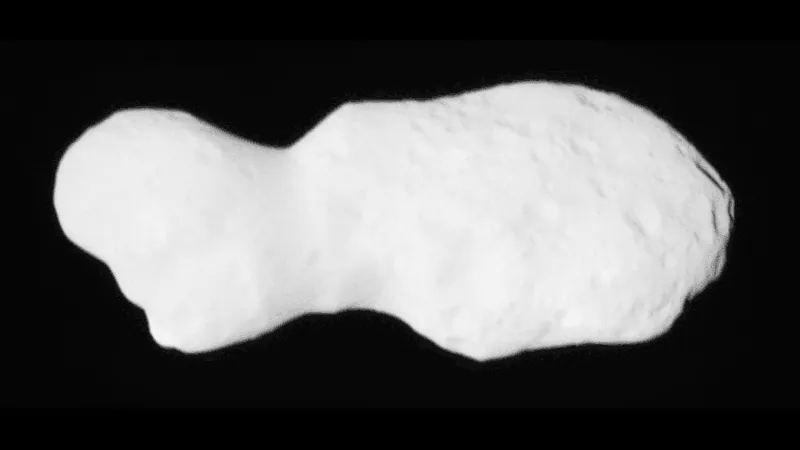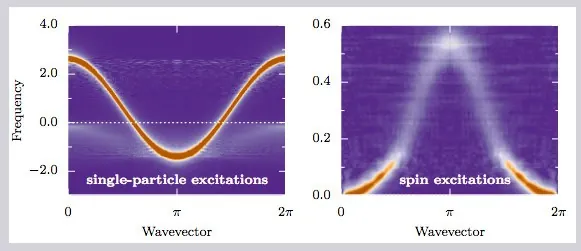
Revolutionizing Multiple Sclerosis Treatment: New Insights from Phase 3 PERSEUS Study on Tolebrutinib
2025-05-29
Author: William
Unlocking the Future of MS Treatment
In the fiercely competitive landscape of multiple sclerosis (MS) treatments, the phase 3 PERSEUS trial is emerging as a beacon of hope. This ongoing, double-blind, placebo-controlled study is investigating the groundbreaking potential of tolebrutinib, an investigational Bruton tyrosine kinase (BTK) inhibitor developed by Sanofi, aimed specifically at patients grappling with primary progressive multiple sclerosis (PPMS). Researchers recently unveiled pivotal demographic data at the 2025 Consortium of Multiple Sclerosis Centers (CMSC) Annual Meeting held in Phoenix, Arizona, showcasing the diversity and characteristics of the trial's participants.
Trial Demographics: A Closer Look
With a diverse pool of 767 enrolled patients, the study reveals that a significant majority, 54%, were male and 83% identified as White. The average Expanded Disability Status Scale (EDSS) score at the start was 4.9, aligning comfortably within the inclusion criteria of 2.0 to 6.5. Led by the esteemed Dr. Robert J. Fox from the Cleveland Clinic, the study highlights an average time of 7.7 years since symptom onset and 4.2 years post-diagnosis of PPMS.
Anticipating Groundbreaking Results
Excitement is building as results from PERSEUS, focusing on tolebrutinib's efficacy, safety, and tolerability, are slated for release later this year. Participants are randomly assigned in a ratio of 2:1 to receive either 60 mg of tolebrutinib or a placebo, with the primary goal being to show delays in disability progression. Notably, a substantial 59% of participants were treatment-naïve, while 89% displayed no gadolinium-enhancing lesions, marking a promising start for the trial.
Tolebrutinib: A Game Changer in MS Treatment?
Tolebrutinib is engineered for enhanced brain protection and aims to modulate immune activity effectively both peripherally and centrally. This irreversible covalent inhibitor promises prolonged therapeutic effects, even as plasma levels wane, similar to established treatments like ibrutinib. Its selective targeting of BTK is designed to limit off-target effects, enhancing its potential safety profile.
Broader Clinical Landscape for Tolebrutinib
The PERSEUS trial forms part of a broader clinical agenda for tolebrutinib, which includes other significant studies such as the HERCULES trial, focusing on non-relapsing secondary progressive MS, and the GEMINI trials on relapsing MS. As of March 2025, the FDA has accepted Sanofi’s application for tolebrutinib, with a pivotal decision looming on September 28, 2025.
Promising Results from HERCULES
The HERCULES study underscored the promising efficacy of tolebrutinib, revealing a remarkable 31% reduction in the time to confirmed disability progression over 6 months when compared with placebo. Additionally, those treated with tolebrutinib were nearly twice as likely to experience improvements in their disability.
Exciting Discoveries on Paramagnetic Rim Lesions
Recent analyses from the HERCULES trial have revealed that patients with a higher load of paramagnetic rim lesions (PRLs) may experience even greater benefits from the treatment—offering a dramatic 54% reduction in the risk of disability progression among those with four or more baseline PRLs. Similar risk reductions were noted in the GEMINI studies, further solidifying tolebrutinib's potential in targeting specific patient profiles.
As anticipation builds, the outcome of the PERSEUS study could signify a transformative leap in the management of multiple sclerosis, potentially changing the lives of patients around the world. Stay tuned for more updates on this exciting journey!









 Brasil (PT)
Brasil (PT)
 Canada (EN)
Canada (EN)
 Chile (ES)
Chile (ES)
 Česko (CS)
Česko (CS)
 대한민국 (KO)
대한민국 (KO)
 España (ES)
España (ES)
 France (FR)
France (FR)
 Hong Kong (EN)
Hong Kong (EN)
 Italia (IT)
Italia (IT)
 日本 (JA)
日本 (JA)
 Magyarország (HU)
Magyarország (HU)
 Norge (NO)
Norge (NO)
 Polska (PL)
Polska (PL)
 Schweiz (DE)
Schweiz (DE)
 Singapore (EN)
Singapore (EN)
 Sverige (SV)
Sverige (SV)
 Suomi (FI)
Suomi (FI)
 Türkiye (TR)
Türkiye (TR)
 الإمارات العربية المتحدة (AR)
الإمارات العربية المتحدة (AR)